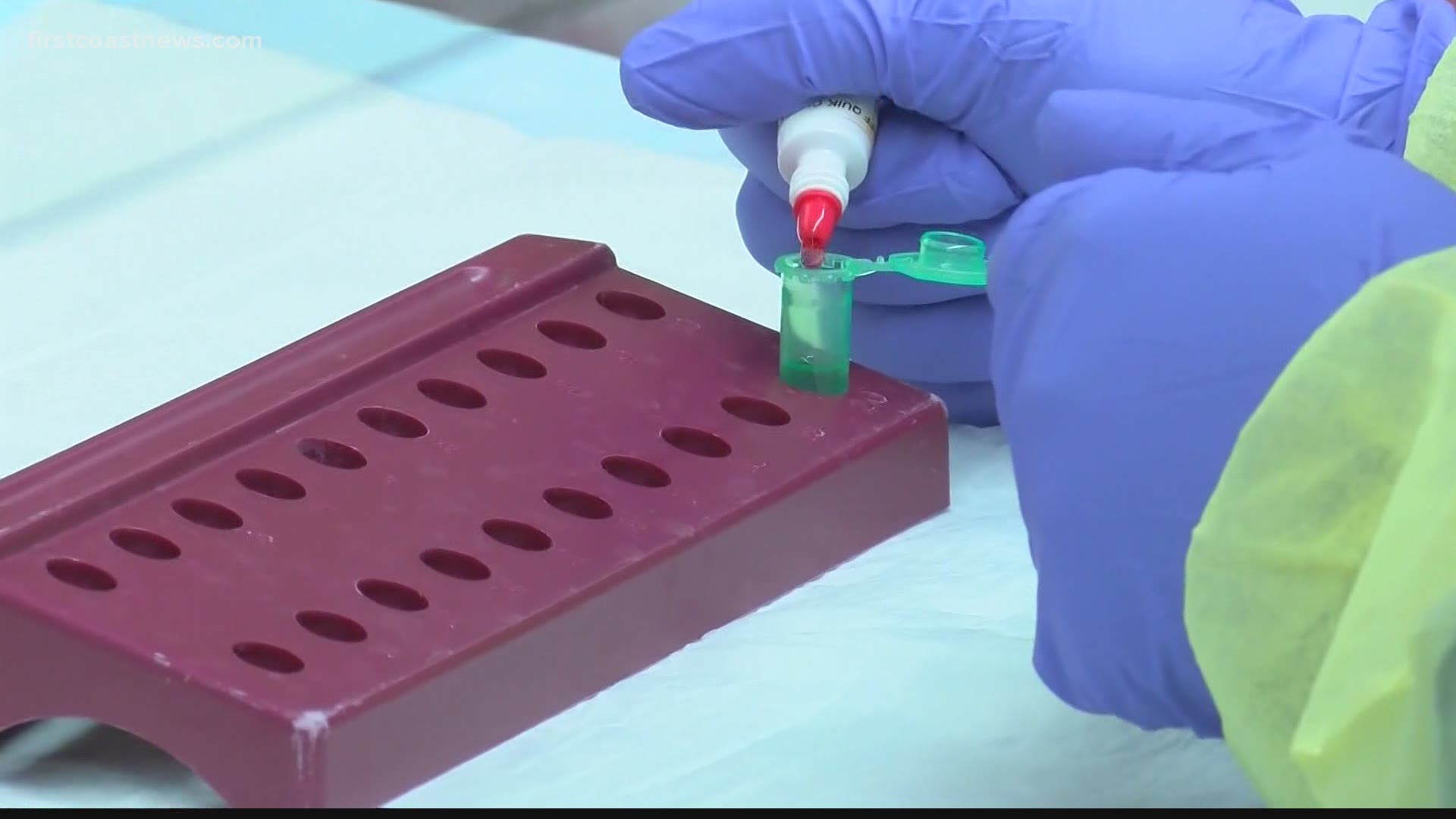JACKSONVILLE, Fla. — There's hopeful news on the COVID-19 vaccine front. The final phase for two vaccine trials is about one month in, testing thousands across the country, including people on the First Coast.
Dr. Michael Koren and his team at the Jacksonville Center for Clinical Research where some of those trials are going on said so far so good, but research still needs to be done.
"I'm very cautiously optimistic," Koren said. "I like what I see so far, and I'm hopeful that we'll continue to see good results, but as you know, it is research, so we have to be very objective."
They're placebo-controlled studies, meaning not everyone gets the active vaccine.
Koren said so far, more than 300 people have enrolled in the two COVID-19 vaccine trials, Pfizer and Moderna. He said the trials are asking for 30,000 people nation-wide, and across the U.S., 10,000 people have enrolled so far. There are three weeks of recruiting left.
According to Koren, they have a waiting list right now but could use about 400 more volunteers. He said they'll prioritize people who are high risk, which includes risk for exposure, like someone who works in retail or a first responder. It also includes people who are at high risk because of medical problems and will be at an increased risk of severe illness if contract COVID-19, like people who are overweight.
The CDC lists obesity as an increased risk of severe illness of COVID-19.
"People who are overweight are more likely to have respiratory complications, so for people who are overweight, their lung capacity may not be adequate to keep up with the needs of their bodies," Koren said.
"People who are overweight are harder to treat in general," Koren said speaking about other medical conditions that are often linked to obesity.
Those who are overweight are more likely to have high blood pressure and diabetes, which can affect the immune system, both Koren and Dr. Elizabeth Ransom of Baptist Health, said.
"Increased weight makes it harder for individuals to breath and puts more stress on the organs themselves," Ransom said. "I think they have the most to gain from participating [in the trials], so we'd be very supportive of the people who have any kind of serious medical condition to come by and at least find out if they can be candidates."
As far as if a COVID-19 would work on those who are obese, Koren said they may need higher doses, but he doesn't think they won't respond to a vaccine overall.
"Sometimes if you have a lot of fat tissue, it's harder for the vaccine to get into your system. That's a potential issue ... but I'm not aware of anything stating that people who are overweight have some intrinsic inability to respond appropriately to vaccines," Koren said.
Ransom said with other vaccines, dating back to the hepatitis vaccine, they've found less of a response in those who are obese, but nothing is certain.
"As long as it's mounting a certain response that’s better than no response at all so absolutely it would definitely be beneficial no matter what to get a vaccination," Ransom said.
If you want to volunteer for the trials in Jacksonville, you can visit the center's website to enroll.

